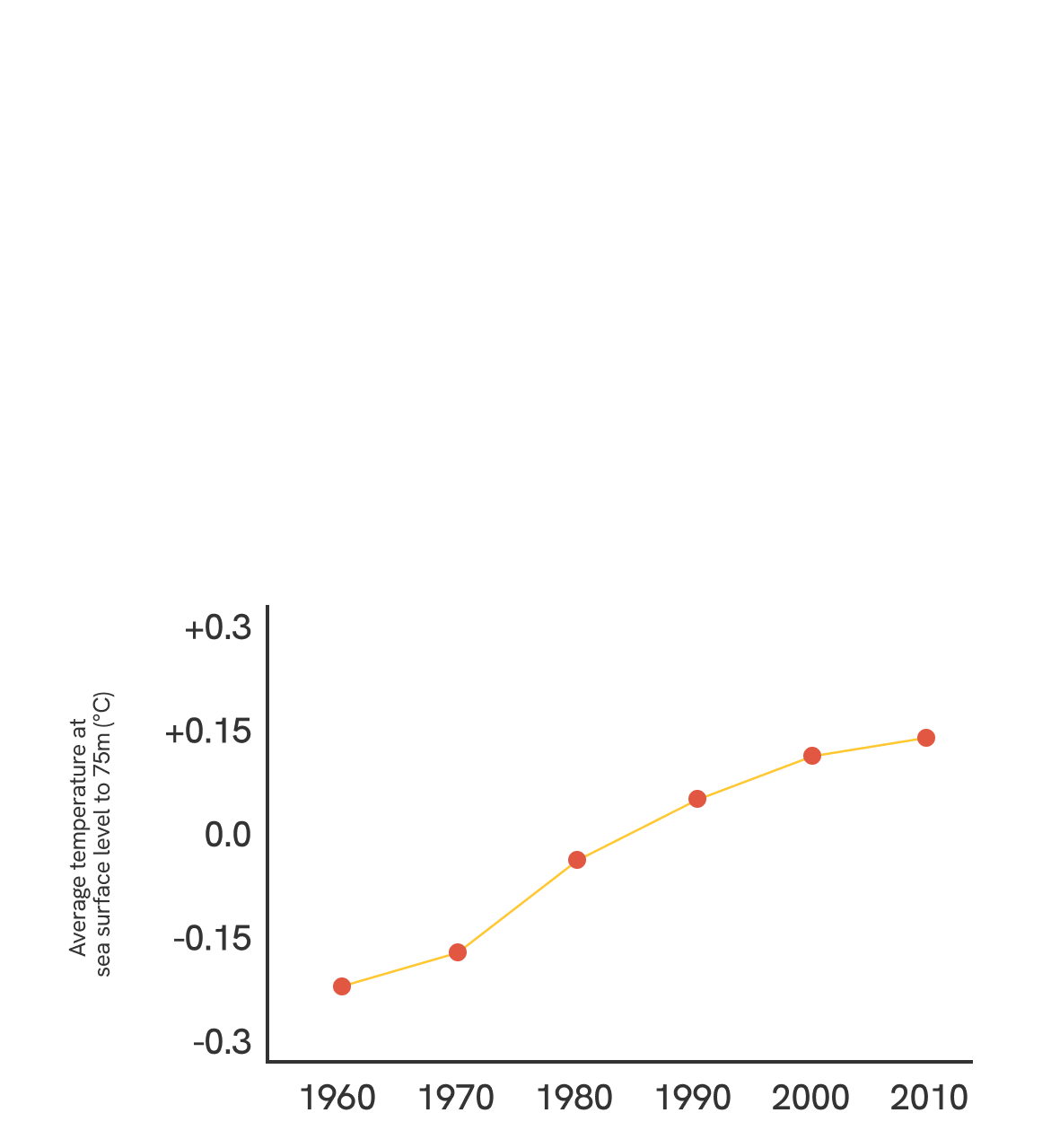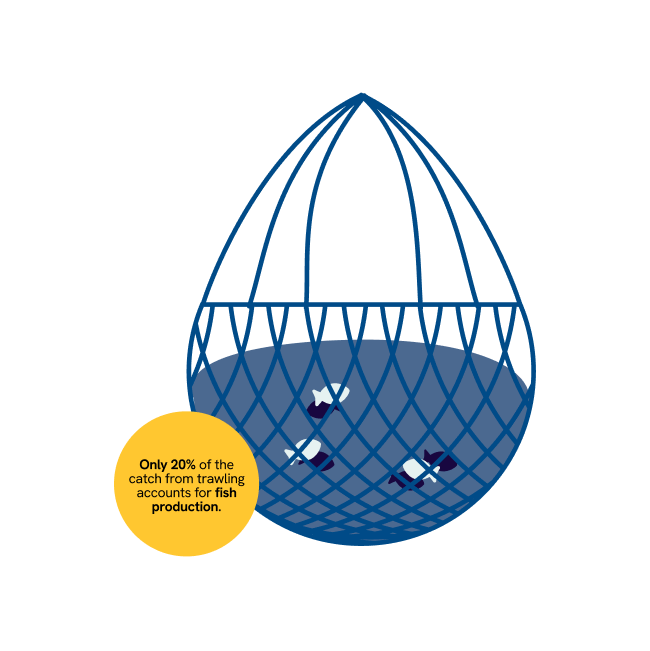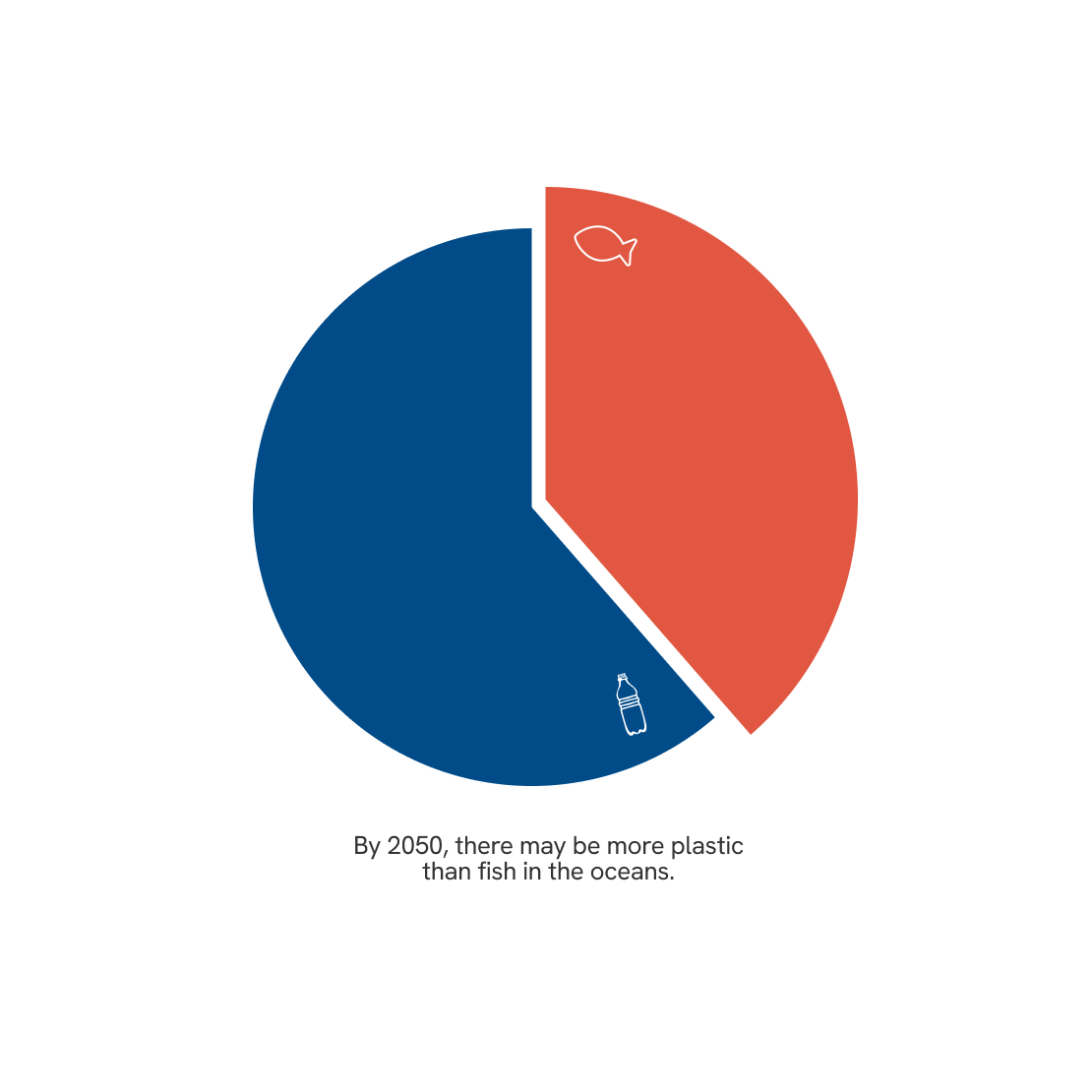The ocean is a vast expanse, covering 70% of our planet. But its significance goes beyond its size. It holds about 95% of Earth’s biosphere, playing a crucial role in our world. The ocean regulates our climate, supports a diverse range of life, and is essential for our survival.
Sylvia Earle, a renowned oceanographer and National Geographic Explorer at Large, once said: “With every drop of water you drink, every breath you take, you’re connected to the sea. No matter where on Earth you live. Most of the oxygen in the atmosphere is generated by the sea.”
Yet, despite its immense significance, human activities are putting the health and balance of our oceans at risk. From pollution and overfishing to the effects of climate change, the threats are multifaceted and escalating.
Given the pressing challenges our oceans face, this report aims to shed light on our connection with the ocean and the measures we must take to safeguard our future.

The Indispensable Role of Our Oceans
While many people would consider the rainforests as being the Earth's primary oxygen source, it's lesser known that the ocean generates even more oxygen — surpassing all the world's rainforests combined. Beyond being a vital oxygen source, the ocean is also a sanctuary for millions of species, playing an integral role in sustaining the health and balance of life on our planet.
Now that we've touched on the ocean's influence, let's dive into the specifics of how it helps sustain life on our planet.
Oxygen Production and Carbon Absorption
Our oceans, often dubbed the planet's lungs, play a pivotal role in regulating our atmosphere. They absorb a significant 25% of human-induced carbon dioxide emissions and are responsible for over half of the oxygen we breathe. This immense oxygen production can be attributed to phytoplankton, minuscule marine organisms that thrive in ocean waters. To underscore this, consider that the vast expanse of our oceans contributes more oxygen than all the world's rainforests combined.
Climate Regulation
Serving as the planet's primary carbon reservoir, the ocean plays a pivotal role in mitigating the repercussions of climate change. Remarkably, it has taken in over 90% of the surplus heat resulting from human activities like fossil fuel combustion. This absorption doesn't just regulate terrestrial temperatures; it also modulates global weather patterns. Such climate stabilization is indispensable, especially for sectors like agriculture and logistics that are acutely sensitive to climatic shifts.

Food and Medicine
The ocean is also a vital source of sustenance. Globally, seafood supplies more than 15% of the animal protein we consume. For many in less-developed regions, seafood isn't just a meal; it's a lifeline, serving as the primary protein source.
But the ocean's role doesn't stop at food and nutrition. Its diverse ecosystems contain compounds that are foundational to some of today's most critical medications. From treatments for cancer and arthritis to Alzheimer’s and heart disease, as highlighted by the National Ocean Service.
Jobs and Economic Progression
Next is the ocean's impact on our jobs and economy. As highlighted by the United Nations, marine fisheries alone provide a staggering 57 million jobs globally. The burgeoning 'blue economy,' which encompasses all ocean-related activities, has an impressive valuation of USD 1.5 trillion each year. This ranks it as the world’s 7th largest economy, and according to the OECD, this figure is projected to double, reaching USD 3 trillion by 2030.
Developing countries, for example, rely heavily on ocean-driven industries, such as tourism, which contribute significantly to the global economy. The tourism aspect ocean alone generates an estimated USD 134 billion annually.

The Biggest Threats to Our Oceans
The health of our oceans is intrinsically tied to our well-being. It influences the air we breathe, the food on our plates, and the climate that shapes our environment.
For generations, there was a prevailing belief that the ocean's vastness made it impervious to human influence. This notion, however, has been proven incorrect. Our actions have placed the oceans in a precarious state. Here's a closer look at the pressing challenges they face:
Rising Temperatures and Acidification
Since the 1970s, the ocean's temperature has been climbing at an average rate of 0.11°C every decade, as highlighted in a report by the IPCC. This consistent warming is causing polar ice sheets and glaciers to recede, contributing to rising sea levels. Moreover, warmer oceans, as discussed by the World Wildlife Fund, act as a catalyst for intensified weather phenomena, including hurricanes and cyclones, posing heightened risks to coastal communities.
Simultaneously, the ocean's chemistry is shifting. As it captures more carbon dioxide from the atmosphere, its acidity levels rise. This, coupled with the warming trend, jeopardizes marine life, particularly shell-bearing creatures like oysters and certain plankton species. The combined effects disrupt marine ecosystems, making the ocean a less hospitable environment for its inhabitants. Alarmingly, if these trends persist, scientists predict that by 2050, our oceans could become inhospitable for coral reefs, leading to significant biodiversity loss, economic repercussions, and heightened coastal vulnerabilities.

Overfishing and Unsustainable Practices
The rate at which we are depleting fish populations is alarming. Our demand for seafood is outpacing the natural reproductive cycles of many species, leading to a precarious imbalance in marine ecosystems.
Certain fishing techniques, notably bottom trawling, exacerbate the problem. These methods often result in the unintended capture of non-target species, known as bycatch. A staggering example comes from Brazil, where an estimated 400,000 tons of bycatch were discarded annually from 2000 to 2018. Such trawling practices increase the risk of marine life extinction, with many of the unintentionally caught creatures sustaining injuries or facing death.
The list of species under threat from overfishing is extensive, encompassing sharks, rays, Bluefin tuna, monkfish, and Atlantic halibut. Moreover, mammals not typically linked to the seafood industry, such as whales and dolphins, are also affected by overfishing.
The environmental impact of bottom trawling extends beyond the immediate catch. It wreaks havoc on the ocean floor. While sandy or muddy terrains might recover relatively quickly, hard bottoms of sponges and corals face a grimmer fate. Some of these habitats may require centuries to heal, and others might never bounce back. The repercussions of such destruction are profound, jeopardizing marine ecosystems, biodiversity, and food security.

Pollution and Plastic Waste
Each year, a staggering 400 million tons of plastic are produced globally. Alarmingly, half of this is designated for single-use items such as shopping bags, cups, and straws. The Ellen MacArthur Foundation warns that if we don't intervene, our oceans might be more populated with plastic than fish by 2050.
But where does all this plastic go? The reality is grim. Annually, a minimum of 14 million tons of plastic finds its way into our oceans. To visualize this, imagine a garbage truck dumping its entire load of plastic into the ocean every minute, non-stop, throughout the year. Such a volume of plastic constitutes a whopping 80% of all marine debris, ranging from surface waters to the deepest oceanic trenches, as highlighted by the IUCN.
The ecological impact is devastating. Marine life often confuses plastic with food, leading to malnutrition, injuries, and even death. Furthermore, the presence of plastic hampers the ocean's ability to sequester carbon, amplifying the challenge of climate change. The economic toll is equally concerning, with cleanup costs projected to skyrocket to USD 670 billion by 2040.
Beyond plastic, our oceans grapple with other pollutants. Chemical contaminants, including agricultural runoff and untreated sewage, spawn oceanic 'dead zones' where marine life struggles to survive.

Now Is the Time to Take Action
Modern business practices, while efficient, often come with significant environmental repercussions.
To put things in perspective, let's consider the ecommerce industry. As highlighted by Fast Company, ecommerce packaging results in a staggering 165 billion packages annually. A significant portion of this packaging—be it plastic, bubble wrap, or cardboard—ends up not being recycled, further exacerbating ocean pollution.
Yet, the environmental toll isn't confined to packaging. The World Economic Forum anticipates a 36% surge in delivery vehicles on urban roads by 2030. An increase in vehicles translates to heightened carbon emissions, much of which our oceans absorb. This not only accelerates climate change but can also disrupt shipping schedules, impacting business operations and profitability.
At Statrys, we're acutely aware of the pressing need to shield our oceans from these environmental threats. We're not just bystanders; we're active participants in the solution.
For every transaction on our platform, we pledge to donate 1HKD to support initiatives aimed at ocean cleanup. While we passionately champion these ocean cleanup initiatives, it's important to note that we operate independently and are not officially endorsed or sponsored by any external organization.

Final Note
The health of our oceans mirrors our well-being. Their prosperity is intertwined with ours. At Statrys, our commitment is unwavering: to champion the protection of this irreplaceable resource, ensuring a cleaner, more vibrant ocean for both present and future generations.
Keen to join us in this mission or wish to learn more?
Explore The Ocean Cleanup's initiatives or contact us at marketing@statrys.com.




